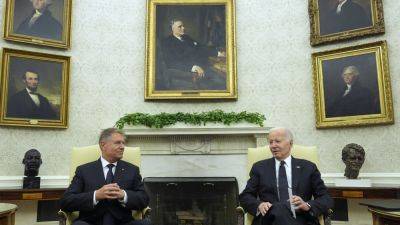Is ‘wacko’ an unparliamentary word? A look at the rules on decorum
After Conservative Leader Pierre Poilievre was ejected from the House of Commons Tuesday for refusing to withdraw what was deemed unparliamentary language, many Canadians began asking: who decides what words are unparliamentary, and what words count?
Conservatives called the decision biased and demanded House Speaker Greg Fergus resign, saying he had lost the confidence of the opposition, who have since rallied around Poilievre’s use of the term “wacko.”
But Immigration Minister Marc Miller said in Parliament, the rules are the rules.
“There are plenty of unparliamentary words that are used (that) may seem arcane and archaic — I’ve been guilty of using them myself,” he told reporters moments after Poilievre’s removal. “When I’ve done it, I’ve gotten up and apologized.
“He wasn’t sanctioned for using the word, he was sanctioned for not retracting it…. That attacks the integrity and the authority of the chair, which is sacrosanct in this House.”
Indeed, while lists of words and phrases deemed unparliamentary exist, the official House rules are focused on how that language is used, rather than banning specific terms.
“Currently, in the House of Commons, a term that is deemed parliamentary one day could be determined to be unparliamentary another day,” Mathieu Gravel, a spokesperson for the Office of the Speaker, told Global News in an email.
“It is up to the Speaker to judge each situation according to the circumstances.”
The House rules say codifying a list of unparliamentary language into law “has proven impractical,” as the Speaker looks more at “the context in which words or phrases are used.”
Crucially, those rules say “personal attacks, insults and obscenities are not in order,” while those same attacks and insults may







